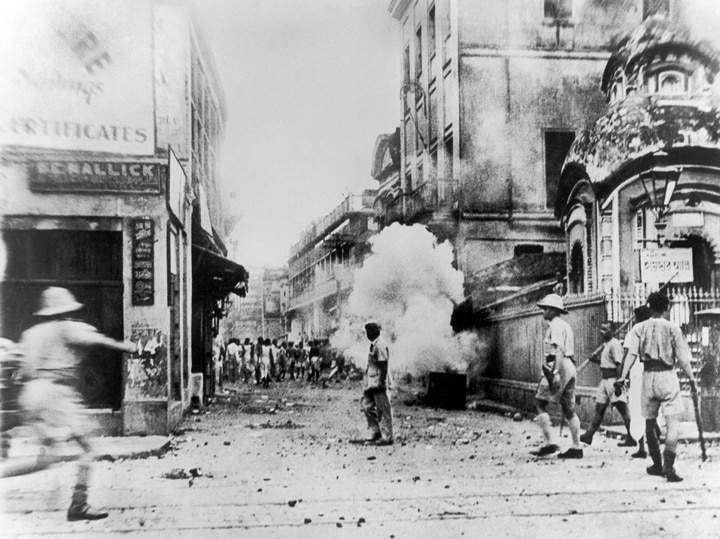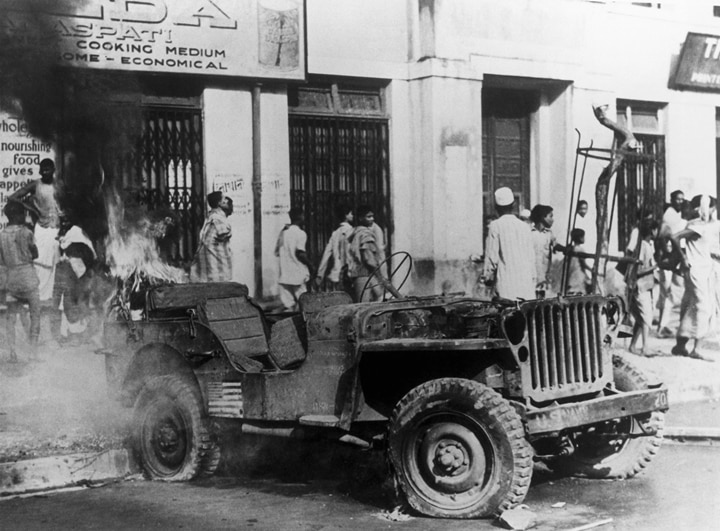Direct Action Day: When Jinnah's Call For Separate Nation Saw Calcutta Bleed Amid Massive Communal Riots
Direct Action Day: Communal riots erupted in Calcutta on August 16, 1946, after the Muslim League, under Jinnah, called for 'direct action' over their demand for a separate state of Pakistan.

A year before India got Independence from British rule, Bengal witnessed one of the worst communial riots and massacres in its history on August 16, 1947. Known as 'Direct Action Day' or 'The Great Calcutta Killings', violence erupted between Hindu and Muslim communities after the Muslim League, under Muhammad Ali Jinnah, held a mass rally demanding a separate country, which later became Pakistan.
The communal riots left around 5,000 people dead and a lakh residents homeless in Calcutta within 72 hours. The widespread violence laid the groundwork for India's Partition.
What Led To The Communal Riots?
Since 1940, the Muslim League, one of the two largest parties apart from the Indian National Congress, started demanding independent states for the Muslim-majority areas in the northwest and the east -- which later became Pakistan and Bangladesh respectively.
In 1946, then British Prime Minister Clement Attlee had sent a three-member Cabinet mission to India in a bid to finalise plans for the transfer of power to the Indian leadership.
The commission, while rejecting the Muslim League's demand for a separate state, proposed a three-tier structure -- a centre, groups of provinces, and separate provinces. The commission recommended that these "groups of provinces" would accommodate the Muslim League's demand of independent states in Muslim-majority regions.
Both the Muslim League and Congress accepted the suggestions initially.

However, things took a turn after then Congress president Jawaharlal Nehru, in a press conference on July 10, 1946, said the party had the right to modify the plan of the Cabinet mission plan.
The remark was vehemently objected by the Muslim League leaders, who feared a domination by the majority Hindus in the Central government after the transfer of power from British.
Goaded by Muslim League politicians, Jinnah rejected the British Cabinet mission's plan for transfer of power to a caretaker government and decided to boycott the Constituent Assembly.
Days later, Jinnah announced that his Muslim League would take "direct action" if a separate state of Pakistan was not allowed to be created.
On July 29, 1946, the Muslim League passed a resolution declaring August 16 as "Direct Action Day" and announced a nationwide protest against the Congress' stand and called for suspension of all business.
The tension was palpable and the entire country was on tenterhooks. The rift between Hindus and Muslims had already deepened.
What Happened On August 16, 1946, In Bengal?
In 1946, Bengal was under Muslim League's rule and was thus a suitable place for the Muslim League to carry out its demonstration. Then Saheed Suharawardy was the chief minister of Bengal.
As August 16 came, Jinnah, in a warning to the Congress, said, "We do not want war. If you want war we accept your offer unhesitatingly. We will either have a divided India or a destroyed India."
A massive rally by Suhrawardy was planned and members of the Muslim League and people from the community from different parts gathered at Ochterlony Monument, now Shaheed Minar, near the Maidan in Calcutta.

Inflammatory speeches by Muslim League leaders at the rally whipped up the crowd leading to large-scale violence and arson. Even before the rally began, tensions were running high amid instances of forced shutting down of shops and pelting of stones in the morning.
The riots saw women being raped and torching of several institutions in Calcutta. The riots had a domino effect and soon spread to Noakhali in East Bengal, where houses of Hindus were set on fire, Punjab and the North Western Frontier Province regions.
The violence, which continued for nearly a week, came to be known as the "Week of the Long Knives". The cycle of riots finally came to an end when Bengal was put under Governor's rule on August 21.
While the riots left a deep scar in the history of Calcutta, it brought to fore the bravery of activists like Gopal Chandra Mukherjee, also known as 'Gopal Patha', who played a significant role in mobilising groups of youths to protect Hindu families and give shelter to those left homeless.
The unprecedented violence finally resulted in Congress under Nehru accepting the Partition of the country.





























